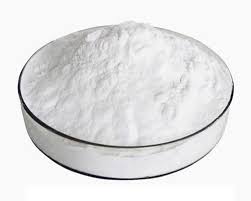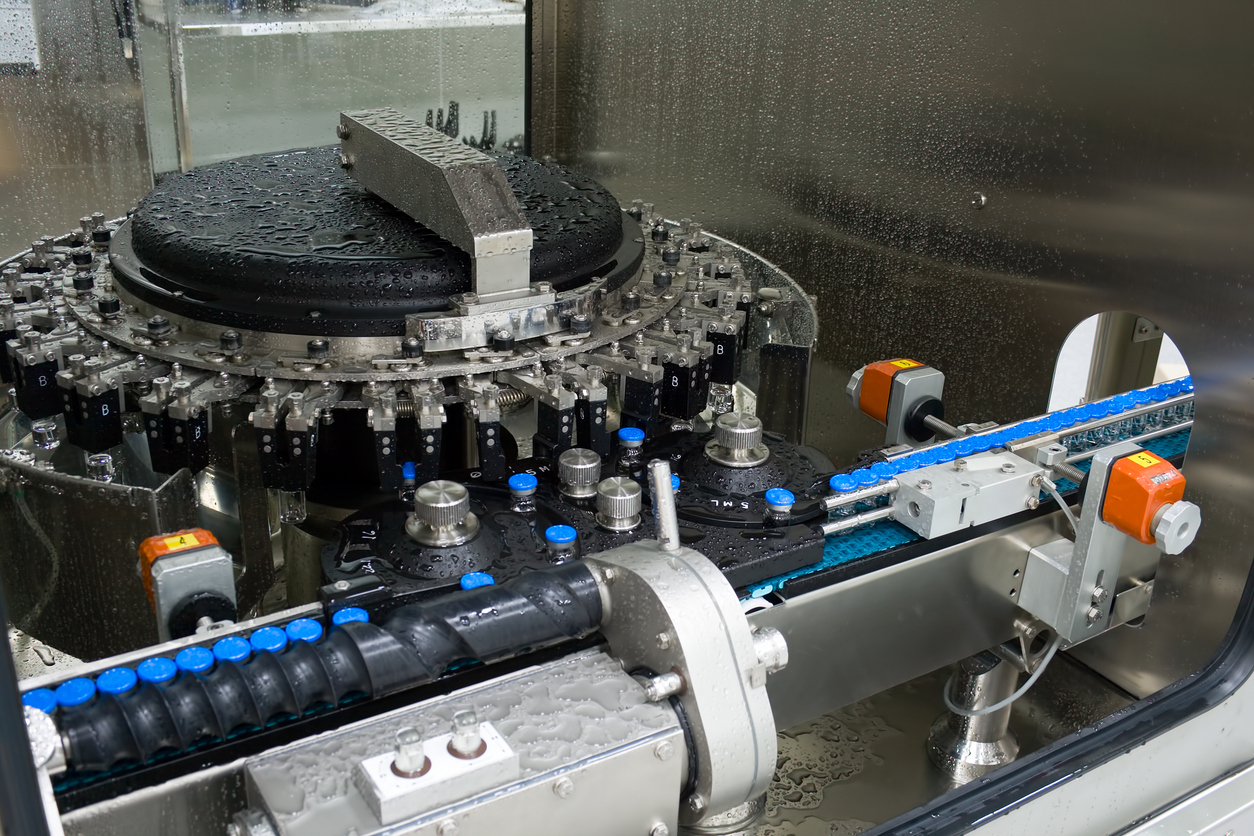Boosting Food Safety and Shelf Life with Calcium Propionate: Wigmore Trading Leads the Way in Nigeria & Africa
Boosting Food Safety and Shelf Life with Calcium Propionate: Wigmore Trading Leads the Way in Nigeria & Africa
Welcome food enthusiasts and safety conscious individuals! Have you ever wondered how your favorite snacks or baked goods stay fresh for longer periods? Look no further, as we bring you an exciting revelation in the world of food preservation – Calcium Propionate. And leading the way in Nigeria and Africa is none other than Wigmore Trading! Get ready to dive into a captivating journey where we uncover how this remarkable ingredient is revolutionizing food safety and extending shelf life like never before. So, buckle up and join us on this thrilling exploration that will leave you craving for more knowledge about calcium propionate’s incredible benefits!
Introduction to Wigmore Trading and Calcium Propionate
Introduction to Wigmore Trading and Calcium Propionate:
Wigmore Trading is a leading provider of food ingredients and additives in Nigeria and across Africa. With over 20 years of experience in the industry, Wigmore has established itself as a trusted partner for food manufacturers, processors, and retailers.
One of the key products offered by Wigmore Trading is Calcium Propionate – a food preservative that has been gaining popularity in recent years. In this section, we will introduce you to Wigmore Trading and provide an overview of Calcium Propionate, its uses, benefits, and how it can boost food safety and shelf life.
About Wigmore Trading:
Founded in 1997, Wigmore Trading started as a small trading company specializing in the importation and distribution of chemical products. Over the years, it has grown into a major player in the Nigerian food industry with an extensive network of suppliers from around the world.
Wigmore’s commitment to providing high-quality products at competitive prices has earned them a reputation as one of the most reliable suppliers in Nigeria. They have also invested heavily in their infrastructure to ensure efficient delivery services that meet customers’ needs.
Introduction to Calcium Propionate:
Calcium Propionate is a white crystalline powder that is derived from propionic acid – a naturally occurring organic acid produced during fermentation by bacteria. It is widely used as an antimicrobial agent to prevent mold growth on bread and other baked goods.
Importance of Food Safety and Shelf Life
Food safety and shelf life are crucial aspects in the food industry. It is essential to ensure that the food we consume is safe for consumption and has a longer shelf life to prevent wastage. This is where calcium propionate comes in as a game-changer.
Importance of Food Safety:
1. Protection against harmful bacteria:
Foodborne illnesses caused by bacteria such as E.coli, Salmonella, and Listeria can have severe consequences on our health. By using calcium propionate as a preservative, it inhibits the growth of these harmful bacteria, ensuring that the food we eat is free from any contaminants.
2. Extended Shelf Life:
Calcium propionate helps to extend the shelf life of food products by preventing mold growth. Mold not only affects the appearance and taste of food but can also produce toxins that can be harmful if consumed.
3. Safe for Consumption:
Unlike some other chemical preservatives, calcium propionate has been deemed safe for consumption by regulatory bodies such as the FDA and EFSA. It does not alter the nutritional value or flavor of food products, making it an ideal choice for preserving various types of foods.
4. Cost-Effective:
Using calcium propionate as a preservative is cost-effective compared to other methods such as refrigeration or freezing. With proper use, it can significantly reduce product spoilage and waste, ultimately saving businesses money.
What is Calcium Propionate and How Does it Work?
Calcium Propionate is a food additive that is commonly used to improve the safety and shelf life of various food products. It is a calcium salt of propionic acid, a naturally occurring organic acid that is found in some plants and animals.
So how does Calcium Propionate work? The main function of this food additive is its ability to inhibit the growth of mold and bacteria in food products. This is achieved through its ability to lower the pH level, making it more acidic and creating an unfavorable environment for microorganisms to thrive.
When added to foods such as bread, cakes, and other baked goods, Calcium Propionate prevents the growth of mold and extends their shelf life by inhibiting the formation of mycotoxins – toxic substances produced by certain molds. These mycotoxins not only affect the appearance and taste of food but can also pose serious health risks when consumed.
In addition to preventing mold growth, Calcium Propionate also works as a preservative by slowing down the spoilage process caused by bacteria. By maintaining low pH levels in food products, it creates an inhospitable environment for harmful bacteria such as Listeria, Salmonella, and E.coli to grow.
Benefits of Using Calcium Propionate for Food Preservation
Calcium Propionate is a widely used food preservative that has been proven to effectively enhance food safety and prolong shelf life. Its benefits make it an essential ingredient in the food industry, and here are some of the reasons why:
1. Inhibits Mold Growth:
One of the main benefits of using Calcium Propionate as a food preservative is its ability to inhibit the growth of mold in various types of foods. Mold growth not only affects the appearance and taste of food but can also pose serious health risks. By adding Calcium Propionate, bacteria and fungi cannot grow and multiply, ensuring that your food stays fresh for longer.
2. Extends Shelf Life:
The antimicrobial properties of Calcium Propionate allow it to extend the shelf life of various foods by inhibiting bacterial growth. This means that products such as bread, cakes, dairy products, and processed meats can stay fresher for longer periods without spoiling or becoming unsafe to consume.
3. Controls Food Spoilage:
Food spoilage is a major concern for both consumers and businesses in the food industry. Adding Calcium Propionate to food products helps control spoilage by preventing harmful bacteria from growing on them. This ensures that your products maintain their quality, taste, and freshness throughout their shelf life.
4. Safe for Consumption:
Unlike other chemical preservatives, calcium propionate has been deemed safe for consumption by regulatory bodies such as the FDA (Food and Drug Administration).
How Wigmore Trading is Leading the Way in Nigeria & Africa
Wigmore Trading is a leading supplier of high-quality food ingredients, additives, and equipment in Nigeria and across Africa. With over 20 years of experience in the industry, Wigmore Trading has established itself as a trusted partner for food manufacturers, retailers, and distributors looking to improve their products’ safety and shelf life.
One of the main reasons why Wigmore Trading stands out in the Nigerian and African market is its commitment to delivering top-notch products that meet international standards. The company sources its ingredients from reputable manufacturers worldwide, ensuring that they are of the highest quality. This allows them to provide their customers with safe and reliable products that comply with local regulations.
Moreover, Wigmore Trading has invested heavily in state-of-the-art facilities and technology to ensure that all their products undergo rigorous testing before being released into the market. This helps to guarantee product purity and traceability, giving customers peace of mind knowing that they are purchasing safe and authentic ingredients.
In addition to supplying premium quality products, Wigmore Trading also offers technical support services such as formulation assistance, shelf-life extension studies, product development guidance, and more. These value-added services have been instrumental in helping many food businesses improve their processes while reducing costs.
Case Studies: Success Stories of Using Calcium Propionate in Food Production
Case Studies: Success Stories of Using Calcium Propionate in Food Production
In recent years, there has been a growing concern about food safety and the increasing demand for longer shelf life in the food industry. This has led to the adoption of various methods and additives to ensure that food products are safe for consumption and have an extended shelf life. One such additive that has gained popularity is calcium propionate.
Calcium propionate is a food preservative commonly used in baked goods, dairy products, and other processed foods. It helps prevent the growth of mold and bacteria, thereby increasing the shelf life of these products. In this section, we will take a closer look at some case studies where calcium propionate has been successfully used in food production.
Wigmore Trading – Leading the Way in Nigeria & Africa
Wigmore Trading is one of the largest suppliers of bakery ingredients, industrial chemicals, and raw materials for various industries in Nigeria and across Africa. With over 20 years of experience in the market, they have established themselves as leaders in providing high-quality products that meet international standards.
One area where Wigmore Trading stands out is their use of calcium propionate as a preservative in their bakery ingredients. By incorporating this additive into their product line, they have been able to improve food safety and increase shelf life for their customers’ baked goods.
Other Ways to Improve Food Safety and Shelf Life
In addition to using calcium propionate as a preservative, there are several other ways to improve food safety and shelf life. These practices can be implemented in both commercial food production and at home.
1. Proper storage: One of the key factors in maintaining food safety and extending shelf life is proper storage. This includes storing foods at the correct temperature (refrigerator or freezer for perishable items), keeping them covered or sealed to prevent contamination, and rotating stock so that older items are used first.
2. Good hygiene practices: Practicing good hygiene when handling and preparing food is crucial for preventing the growth of harmful bacteria. This includes washing hands before handling food, cleaning surfaces and utensils thoroughly, and avoiding cross-contamination by using separate cutting boards for raw meat and produce.
3. Vacuum packaging: Vacuum packaging removes oxygen from the packaging, which can slow down spoilage caused by exposure to air. This method is commonly used for meats, cheeses, and other perishable items.
4. Freezing: Freezing is an effective way to preserve many types of foods for extended periods of time. It slows down bacterial growth by keeping foods at temperatures below 0 degrees Celsius (32 degrees Fahrenheit).
5. Canning: Canning involves heating foods in jars or cans to kill bacteria and create a seal that prevents any new bacteria from entering the product. This method is commonly used for fruits, vegetables, jams, sauces, and pickled products.
Conclusion: The Future of Food Preservation with Calcium Propionate
Conclusion: The Future of Food Preservation with Calcium Propionate
Calcium propionate has proven to be a highly effective food preservative, providing numerous benefits to the food industry, especially in terms of safety and shelf life. As the demand for safe and long-lasting food products continues to rise, it is expected that the use of calcium propionate will become more widespread in the future.
One of the main reasons for this is its versatility as a preservative. Calcium propionate can be used in a wide range of food products, including baked goods, dairy products, meats, and even processed foods. This makes it an attractive option for manufacturers looking for a single solution to preserve different types of foods.
Moreover, calcium propionate has been approved by regulatory bodies such as the Food and Drug Administration (FDA) and the European Food Safety Authority (EFSA) as safe for consumption. This gives consumers peace of mind knowing that their food has been treated with an approved preservative.
In addition to its safety benefits, calcium propionate also helps extend the shelf life of various food products. By inhibiting mold growth and preventing bacterial spoilage, it can significantly increase the storage time of perishable goods. This not only reduces food waste but also allows businesses to save money by minimizing product losses due to spoilage.
Furthermore, studies have shown that calcium propionate does not affect the taste or texture of most foods when used within recommended levels.








Comments are closed.